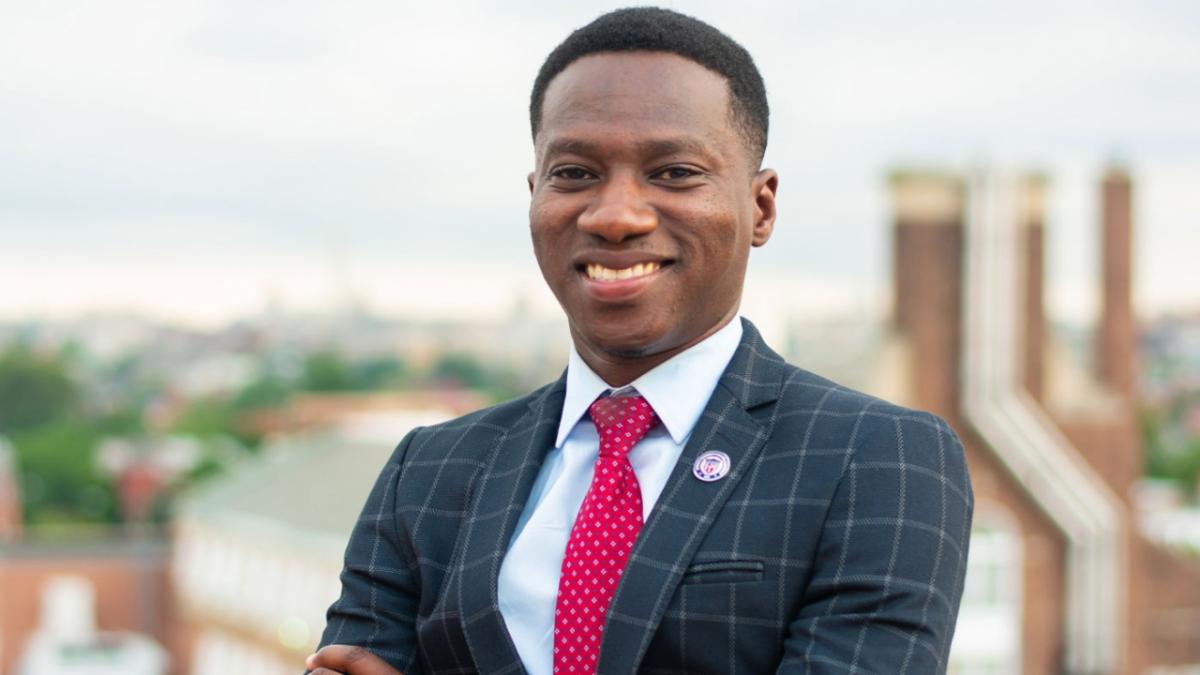Tomorrow's Innovators: Kwame Sarpong

Originally published on Bristol-Myers Squibb newsroom
Our own Kwame Sarpong discusses his journey to BMS – from growing up in Ghana to his studies at Howard University.
Read his story and the advice he has for Black talent interested in the biopharma field.
Q. How did you get started in the biopharma industry?
A. I'm a pharmacist by training, but I decided I didn’t want to take the typical pharmacist route. I always enjoyed working with patients one at a time, teaching them about their medications, but I wanted to take that further. So, I got my MBA while also getting my PharmD and decided I wanted to work at a large pharma company versus retail pharmacy. That’s how I ended up at BMS. I’ve been here just over a year.
Q. How did your experience in attending a HBCU impact your career path?
A. I was born and raised in Ghana then came to the U.S. to receive my undergrad degree. I remember being one of probably three Black people in an organic chemistry class of hundreds. That was tough for me, especially after being around Africans my entire life.
Then coming into a HBCU for my masters and being surrounded by Black people doing great work motivated me to go above and beyond. Everywhere I looked I was surrounded by greatness. That gave me the fire to go out and be the best version of myself.
I often say to anyone I mentor that I really didn’t find myself until I came to Howard University. There I figured out who I wanted to be in life, that I didn’t want to settle. I always walk into a room confident in myself, confident in my skin color. I got that confidence from Howard.
Q. How did you become aware of the biopharma industry and what led to your interest in pursuing a career in biopharma?
A. The pharmaceutical industry in Ghana has a problem with a lot of counterfeit pharmaceuticals. My parents have experienced that problem firsthand, so they’re actually in the U.S. right now seeking better medical treatment. Growing up and being surrounded by that problem, I knew I needed to help change it. That’s why I decided to be a pharmacist. Specifically, I wanted to be on the business side of a large pharmaceutical company like BMS because I felt my reach could be on a global scale.
Q. What advice would you give to someone considering or just beginning a role in biopharma?
A. Sometimes when you hear about big pharma or see it in the news there’s this notion they’re doing more harm than good; or when I tell people I work at a large pharma company, they sometimes look at me sideways.
I would say take time to educate yourself on the industry and the good that we do. We actually work to save lives. At BMS, we’re on the cutting edge of lifesaving drugs. That in of itself should be enough to come into work every single day.
Also, I was in the school of business and one of just two people pursuing the pharma industry. Most others were there with finance or consulting industry jobs on their minds. I’d want to tell people that whatever you’re hoping to do at those finance or consulting firms—you can find something within the pharma industry to apply those skills.
Finally, I’d say that if you really want to make a global impact, biopharma is where it is.
Q. Since starting your career, is there anything you’ve learned about the biopharma industry that’s surprised you?
A. I honestly thought the only way into the industry was to become a pharmacist. I love being a pharmacist and having earned my PharmD, but the one thing I wish I knew sooner was that the path here wasn’t simply through pharmacy school. I ultimately leveraged my MBA to end up here at BMS, and now I use both my PharmD skills and my MBA skills. I’m still realizing how many avenues there are into the industry and how many different opportunities lie within pharma.
Q. What excites you most about BMS?
A. I’m in the Rotational Development Program. The fact that I get to spend eight months in one functional area, then eight months in another area has just been amazing.
In my current role, I work on U.S. Cardiovascular market research. What excites me most in that role is I can use my pharmacy knowledge on a day-to-day basis. We find ourselves constantly interviewing cardiologists, primary care physicians and patients. In my past life, that’s what I did, so that language comes naturally to me—knowing when to push a question, when to pull away, and how comfortable a patient might be.
I love that I get to use my pharma knowledge and my business acumen, on top of the fact I get to spend time in different functional areas.

